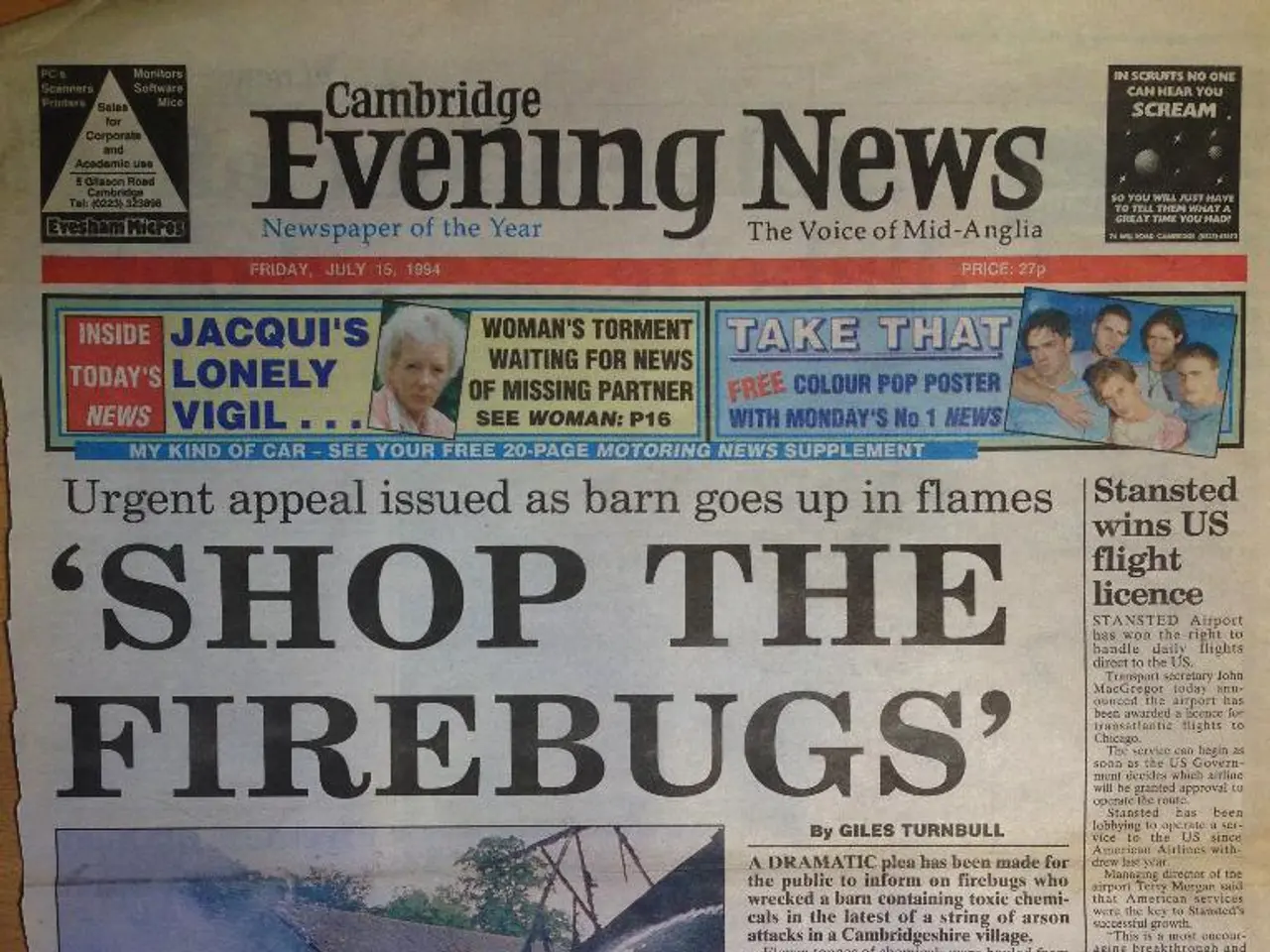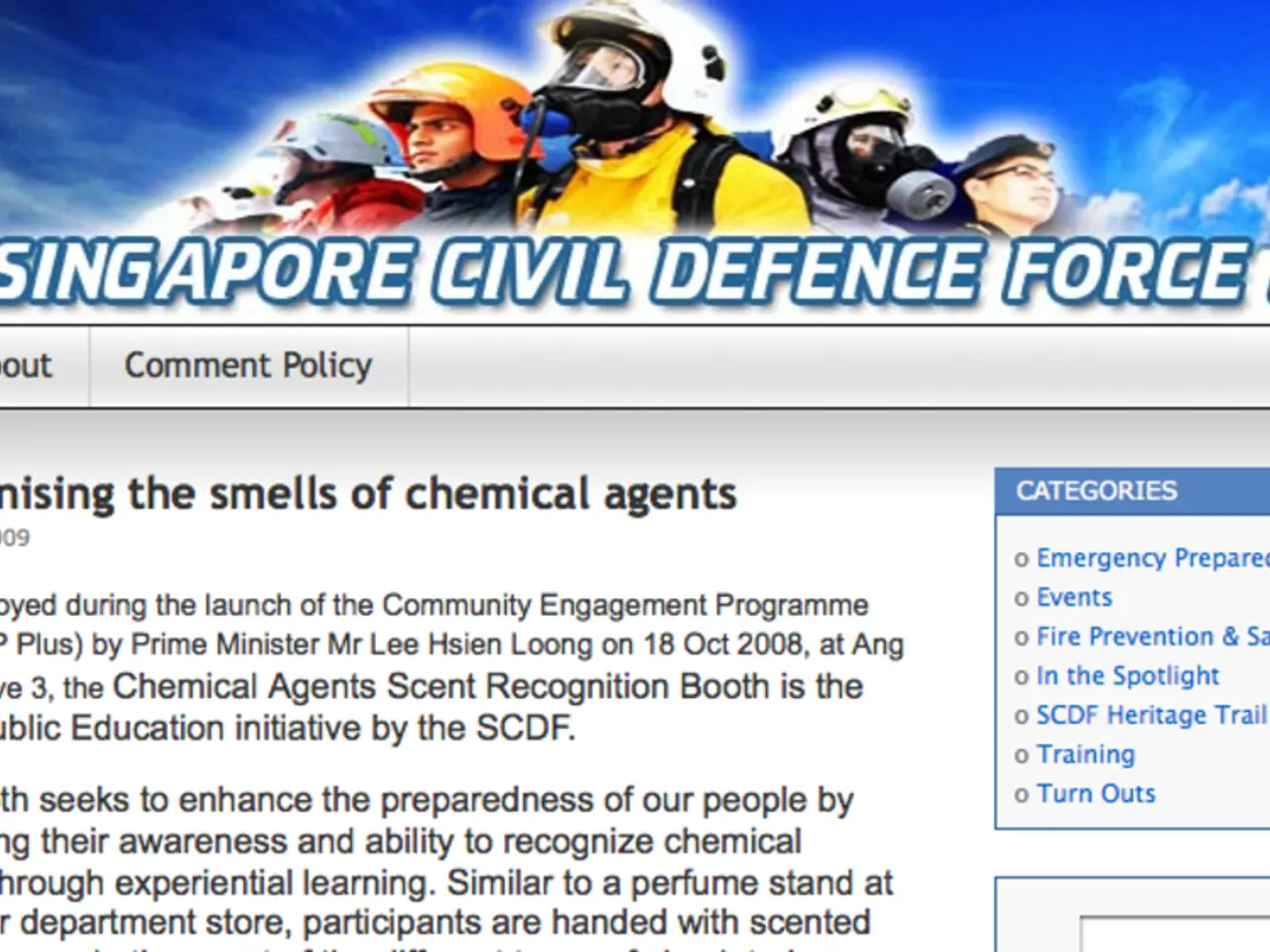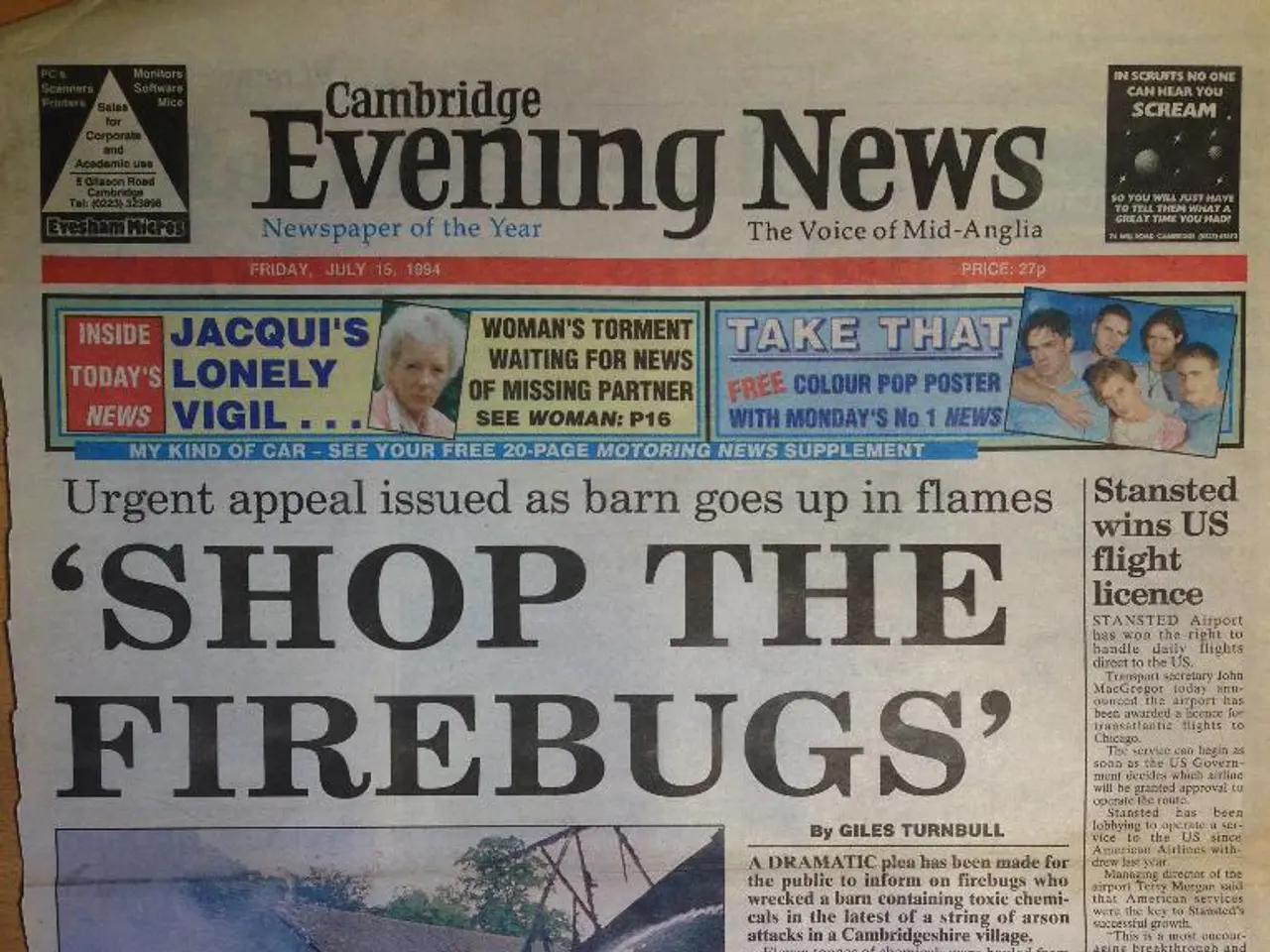Commission has yet to receive a response from Commission.
==============================================================
Canada's geopolitical role and defense posture are evolving, with a focus on leveraging emerging technologies, deepening partnerships, and addressing regional security challenges. However, a contentious debate has arisen about the possibility of Canada acquiring a nuclear deterrent.
In a spring article for The Hill Times, Jamie Carroll, former national director of the Liberal Party of Canada, suggested that it might be time for Canada to consider a nuclear deterrent. Yet, the prevailing expert and policy perspectives lean against such a move, favouring diplomatic engagement, disarmament efforts, and alignment with allies' collective security frameworks.
Stéphane Roussel, in a separate argument, proposes reducing Canada's dependence on the United States in military matters, suggesting that it would be more beneficial for Canada to focus on reducing this dependence rather than pursuing nuclear weapons. Roussel also highlights the astronomical costs associated with developing and maintaining a nuclear arsenal.
Aisha Ahmad, associate professor of political science at the University of Toronto, argues that nuclear weapons can deter an attack, invasion, or attempt at annexation by a hostile superpower. Ahmad believes that not possessing nuclear weapons in the current geopolitical context is also dangerous, as it could leave Canada vulnerable to threats.
However, Émile Lambert-Deslandes, a researcher and doctoral candidate at the Department of Political Studies at Queen's University, disagrees with the proposal for Canada to acquire a nuclear deterrent. Lambert-Deslandes asserts that nuclear weapons do not necessarily protect against a conventional conflict and that the costs of such a program would be astronomical. He also warns that developing nuclear weapons could potentially lead to a lack of investment in other areas of the defense budget.
The development of a nuclear weapons program would require significant investments in uranium enrichment, technology, and "vectors" such as missiles, planes, or submarines. The United States currently spends more on its nuclear armaments than Canada does on its entire defense budget.
Moreover, Canada has a robust regulatory regime for nuclear safety and material use under the Nuclear Safety and Control Act, managed by the Canadian Nuclear Safety Commission. This framework ensures compliance with international commitments on peaceful uses of nuclear energy, not weapons development.
Canadian civil society groups such as the Canadian Pugwash Group and the Canadian Leadership for Nuclear Disarmament (CLND) strongly oppose nuclear weapons acquisition, instead promoting Canada’s role in global nuclear disarmament negotiations and adherence to treaties aiming to eliminate nuclear weapons altogether.
There is an international momentum exemplified by campaigns to join instruments like the Treaty on the Prohibition of Nuclear Weapons (TPNW), which Canada has not joined but which many view as the correct path, emphasizing abolition and opposing nuclear modernization.
In conclusion, Canada's political and regulatory context supports nuclear safety and non-proliferation, while advocacy voices highlight the moral, ethical, environmental, and security risks nuclear armament would pose. Given Canada’s role as a middle power and commitment to multilateral security arrangements, acquiring a nuclear deterrent counter to these trends would represent a significant and controversial shift not supported by current official outlooks or civil society consensus.
[1] Krause, J. (2021). Canada's emerging role as a middle power. International Journal, 76(1), 3-19.
[2] Canadian Nuclear Safety Commission. (n.d.). Nuclear Safety and Control Act. Retrieved from https://nuclearsafety.gc.ca/eng/resources/acts-regulations/nuclear-safety-and-control-act/
[3] Canadian Pugwash Group. (n.d.). About us. Retrieved from https://www.pugwash.ca/about-us/
[4] Canadian Leadership for Nuclear Disarmament. (n.d.). About us. Retrieved from https://www.canadianleadershipfornucleardisarmament.ca/about-us/
[5] International Campaign to Abolish Nuclear Weapons. (2021). About us. Retrieved from https://www.icanw.org/about/
- The debate about Canada acquiring a nuclear deterrent is heavily influenced by politics, general news, and policy-and-legislation, as experts, policymakers, and civil society groups advocate for various positions on the matter, aligning with collective security frameworks, diplomatic engagement, disarmament efforts, or opposing nuclear weapon acquisition due to moral, ethical, environmental, and security concerns.
- With the prevailing expert and policy perspectives against such a move, Canada's geopolitical role and defense posture seem unlikely to include war-and-conflicts policies focused on developing and maintaining a nuclear arsenal, given the country's commitment to multilateral security arrangements, nuclear safety, and non-proliferation, as exemplified by its regulatory regime, civil society groups, and international momentum toward nuclear disarmament negotiations.







